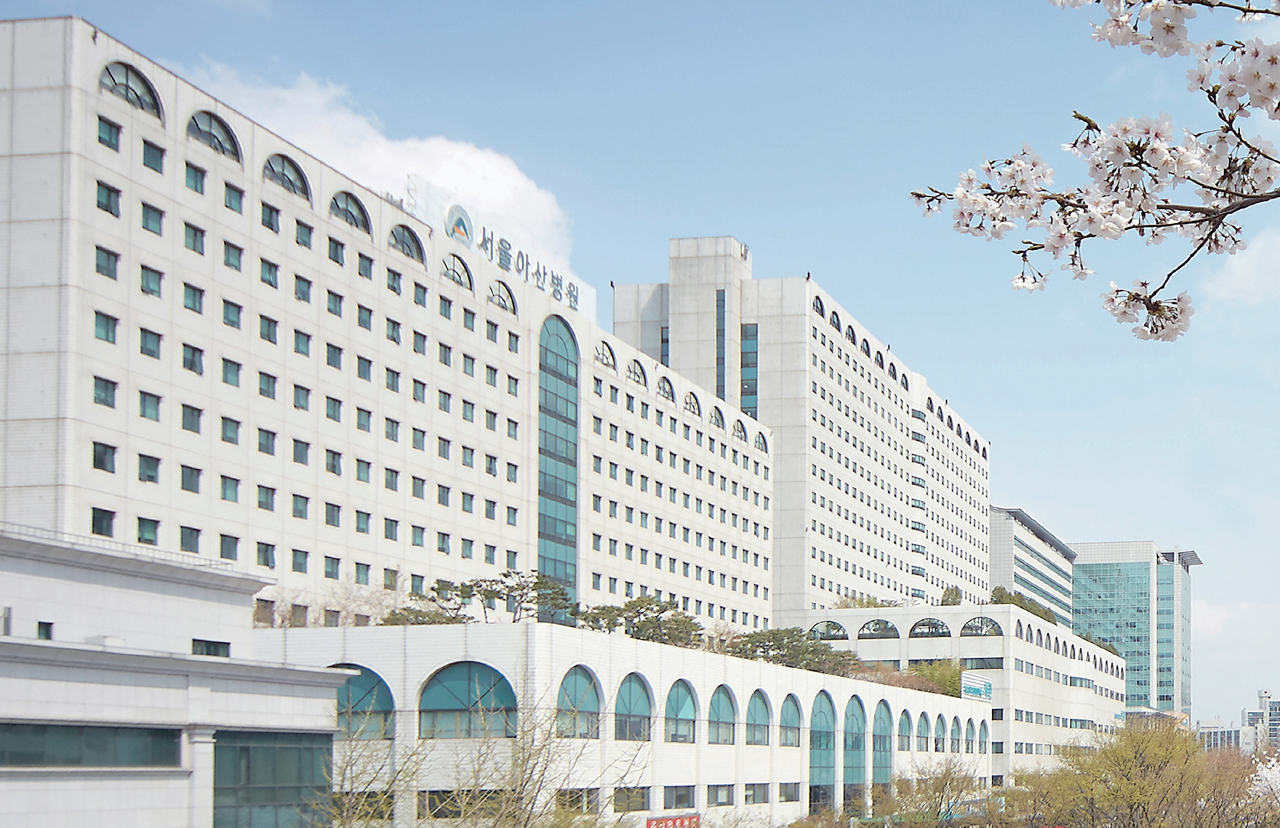The recent death of a nurse at Asan Medical Center (AMC) who suffered a cerebral hemorrhage while on duty is rocking the medical community to the core. AMC is regarded as one of the best among Korea’s five largest hospitals.
Health industry officials are wondering why AMC with top medical facilities and elite physicians could not treat the nurse immediately and had to transport her to Seoul National University Hospital (SNUH) instead.
According to Blind, a mobile app for an anonymous forum among verified employees, the nurse complained of headache and collapsed while working at AMC on the early morning of July 24. She was diagnosed with cerebral hemorrhage after examination at the hospital’s emergency room.
AMC said it provided emergency treatment including embolization to stop the bleeding but the nurse’s condition was critical. An AMC surgeon was away and it was faster to move her to SNUH for a quick surgery than to wait for the surgeon to arrive at AMC, the hospital said.
However, the nurse died after arriving at SNUH.

The death of the AMC nurse sent shock waves not only to the medical community but to political circles.
Some lawmakers argued that the government should investigate the incident. Civic groups urged the government to punish AMC under the Serious Accidents Punishment Act.
Rep. Seo Young-seok of the Democratic Party of Korea said he could not believe that AMC, the largest among tertiary hospitals, had such a “poor medical environment” that failed to save the nurse, at the meeting of the National Assembly’s Health and Welfare Committee on Tuesday.
He called on the Ministry of Health and Welfare to conduct a fact-finding investigation. In reply, Second Vice Minister of Health and Welfare Lee Ki-il said the ministry would do so.
A civic group, “Civic Action Changing Nursing and Care,” said AMC should face legal punishment due to an alleged breach of the Serious Accidents Punishment Act.
It requested the government to form an investigation team to punish those responsible for the nurse’s death and prepare measures to prevent such an incident.
The Serious Accidents Punishment Act took effect in January to punish an employer who violated the obligation to establish a safety and health management system, in the event of a serious accident such as the death of an employee. Such an employer could face a one-year or longer jail term or a penalty of up to 1 billion won ($761,594).
‘Chronic shortage of ICU beds, specialists aggravated the problem’
Insiders of the medical community were cautious about why AMC moved the critically ill nurse to SNUH but cited the shortage of intensive care unit (ICU) beds and specialists as the major limitation of the Korean healthcare system.
They speculated that AMC must have decided to transport the nurse because it had no sufficient bed at the ICU.
ICU beds at most Korean tertiary hospitals are 90 percent full, and this problem occurs not only in AMC but in all tertiary hospitals.
Korean Stroke Society (KSS) President Bae Hee-joon (at the neurology department of SNU Bundang Hospital) said the most crucial factors in urgent surgery were operating rooms, ICUs, and surgeons.
“Tertiary hospitals do not have much room in those three,” Bae said.
When 90 percent of ICU beds are occupied, the hospital has no space for an urgent patient, he went on to say.
“Hospitals should have enough ORs, beds, and human resources to provide care for essential serious diseases but they don’t. This problem was already predicted,” he said.
Another expert said AMC must have found it difficult to give priority to its nurse and ignore another patient who had been waiting for an ICU entry before the nurse.
An emergency care professor said ICUs at the Big Five hospitals including AMC are always full.
“Many people are waiting in the ER, but if you treat the employee first and transport the other patient to another hospital or delay the patient’s hospitalization, you need to think about whether it is ethically acceptable,” he said.
Can Korean people accept a situation where a hospital treats its employee first and refuse to receive other patients, he asked.
A third observer raised the possibility that a specialist who could perform demanding surgery to stop subarachnoid hemorrhage must have been absent at AMC, given the sudden worsening of the nurse’s condition.
“If angiography had been enough, AMC would have done it,” an emergency medicine specialist said. “But if the aneurysm was ruptured, it would require a very difficult surgery that takes six to 10 hours.”
She added that such surgery is not something that any surgeon could do.
“There are only a handful of brain surgeons who can perform such operation in a hospital.”
Even if AMC had such a neurosurgeon, the surgeon cannot operate on two or three patients at the same time, she went on to say.
People think AMC is the largest hospital in Korea but they need to know that situations could vary, she added.
‘Medical safety net essential to secure golden hour’
In the wake of the AMC nurse’s death, some raised the need to build a safety net to treat major serious diseases such as stroke or brain hemorrhage at the right time.
Hospitals need enough beds, ORs, and human resources with support from the government, they said.
President Bae of KSS said the prognosis of stroke or cerebral hemorrhage could change by a single hour.
He emphasized that a stroke patient has to receive treatment at the first hospital and should arrive in the hospital within the golden hour.
“To do so, there should be a system to share information about beds and surgeons. But we don’t have such a kind of system,” he said.
A patient with a cardiocerebrovascular disease must receive treatment immediately after the arrival in a hospital, Bae noted.
“As the golden time is important for cardiovascular treatment, we need a separate emergency medical delivery system,” he said.

